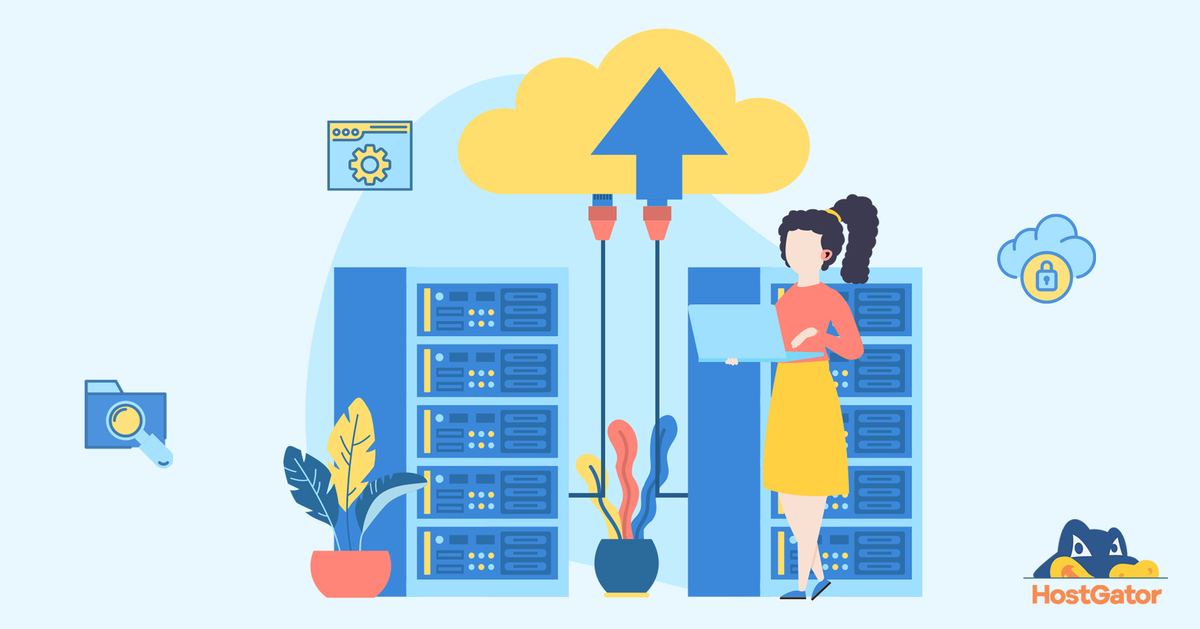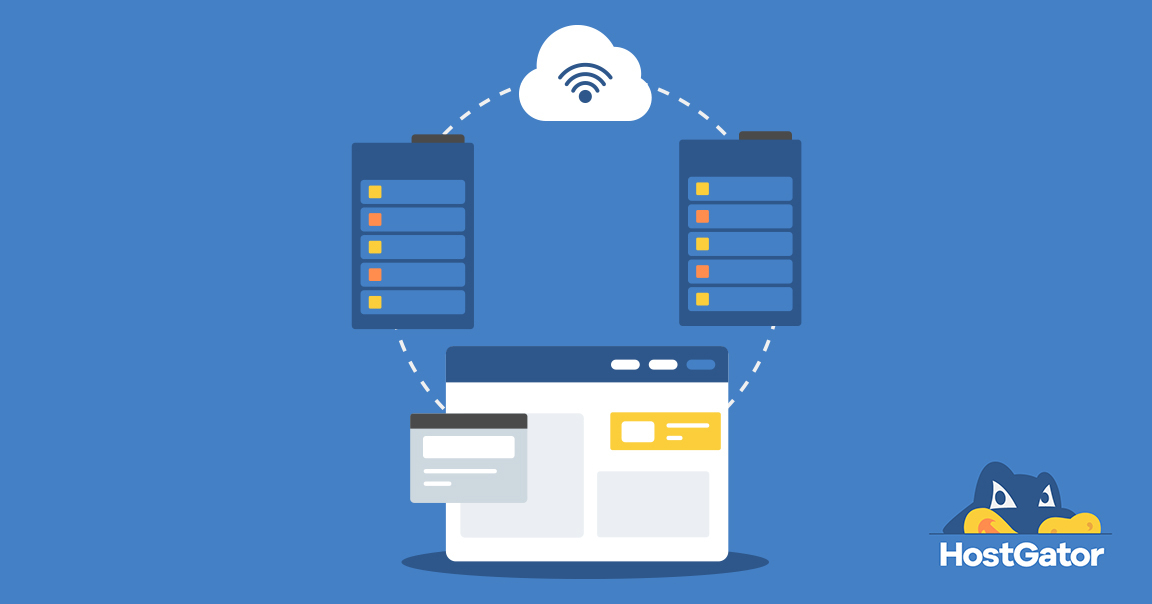Cloud hosting has completely transformed the management of businesses’ online presence and the storage of their data. Despite its increasing widespread use, there are still many misunderstandings about cloud technology.
In this blog, we’ll explore cloud hosting and debunk five of the most common cloud myths, providing hosting facts to help you make informed decisions about your business’s IT infrastructure.
What is the Cloud?
In the tech world, the cloud refers to a network of servers hosted on the Internet, used to store, manage and process data. This is in contrast to local servers or personal computers.
Three primary cloud computing models exist:
- Infrastructure as a Service (IaaS): This is the most basic cloud model, providing services like servers, storage and computing resources. It’s ideal for startups and businesses looking to host websites or analyse data without maintaining private servers.
- Software as a Service (SaaS): This is the most common cloud model, also known as cloud application services. SaaS lets people use applications over the Internet, without having to run or take care of the software themselves.
- Platform as a Service (PaaS): This model delivers a framework for developing, testing, deploying, and managing web applications. It’s useful for businesses of all sizes that need a platform for application development.
Now that we have a basic understanding of cloud computing, let’s address some of the most common myths surrounding this technology.
5 Most Common Cloud Hosting Myths
Myth 1: The Cloud is Not Secure
One of the most prevalent cloud hosting myths is that it’s not secure. Many businesses hesitate to adopt cloud technology due to concerns about data protection and privacy.
Hosting Facts: Contrary to this misconception, cloud hosting can be highly secure when implemented correctly. Trustworthy cloud service companies put a lot of money into security steps that often go above and beyond what a single business can do on its own. These providers offer multiple security features, including:
- Intrusion Detection Systems to blacklist malicious users
- High-end encryption to block suspicious traffic
- Firewalls for protection against viruses and malware
- PCI compliance for secure financial transactions
It’s crucial to understand that data vulnerability exists on any storage device, whether physical or virtual. By choosing a reliable cloud provider and implementing best practices, businesses can ensure their data remains secure in the cloud.
Myth 2: Cloud Hosting is Very Expensive
Another common misunderstanding about cloud computing is that it’s too expensive for small and medium-sized businesses.
Hosting Facts: Contrary to this belief, cloud hosting can be one of the most cost-effective solutions in the long run. Here’s why:
- Scalability: Cloud hosting allows you to pay only for the resources you need and scale up as your business grows. This eliminates the necessity for substantial hardware investments at the beginning.
- Built-in Features: Many cloud hosting plans come with multiple features included, providing excellent value for money.
- Reduced Maintenance Costs: With cloud hosting, you don’t need to maintain physical servers, reducing IT staff and infrastructure costs.
While the initial transition to cloud hosting may involve some costs, the long-term benefits often outweigh these expenses, making it a smart investment for businesses of all sizes.
Myth 3: The Main Value of the Cloud is IT Cost Reductions
Many business leaders focus solely on potential IT cost savings when considering cloud adoption, missing out on the broader benefits the cloud can offer.
Hosting Facts: While cost efficiency is certainly an advantage of cloud hosting, it’s far from the only benefit. Cloud adoption can transform your entire IT operating model and drive significant business value. Here are some key areas where the cloud can make a substantial impact:
- Improved Analytics: Cloud computing power enables more complex data analysis, leading to better business insights.
- Faster Time to Market: Cloud facilitates quicker development and deployment of new products and services.
- Enhanced Innovation: The cloud makes experimentation less risky and more cost-effective, fostering innovation.
- Market Expansion: Cloud technology allows businesses to enter new markets more quickly and at a lower cost.
These business benefits often far outweigh the IT cost savings, making cloud adoption a strategic decision rather than just a cost-cutting measure.
Myth 4: Cloud Traps Your Data
Some businesses fear that once their data is in the cloud, they’ll be unable to migrate to another service provider, essentially becoming trapped.
Hosting Facts: This cloud misconception is unfounded. Reputable cloud service providers adhere to privacy codes that prevent them from trapping your data. In fact, the cloud hosting industry has developed numerous tools and processes to facilitate data migration between providers. Some examples include:
- Amazon’s Snowball for Data Transportation
- Third-party tools
- Migration services offered by most cloud hosting providers
While data migration does require careful planning and execution, it’s certainly possible and often easier than many businesses expect. The key is to choose a provider that offers clear data portability policies and supports industry-standard formats and APIs.
Myth 5: Cloud Hosting is Not Sustainable
There’s a common cloud hosting misconception that it is not environmentally friendly due to the energy consumption of large data centres.
Hosting Facts: Contrary to this belief, cloud hosting can be a more sustainable option compared to traditional on-premises hosting. Here’s why:
- Resource Efficiency: Cloud data centres use resources more efficiently by serving multiple clients, reducing overall energy consumption.
- Advanced Cooling Systems: Many cloud providers invest in state-of-the-art cooling technologies, minimising environmental impact.
- Renewable Energy: Leading cloud providers are increasingly powering their data centres with renewable energy sources.
- Reduced Hardware Waste: Cloud hosting eliminates the need for individual businesses to maintain and regularly replace physical servers, reducing electronic waste.
By consolidating computing resources and leveraging economies of scale, cloud hosting can actually be a more environmentally friendly solution than traditional hosting methods.
Conclusion
As we’ve seen, many common cloud hosting myths and misconceptions don’t hold up under scrutiny. Cloud hosting offers numerous benefits, including enhanced security, cost-effectiveness, business value, data portability and sustainability. Understanding these hosting facts helps companies choose IT infrastructure and use cloud technologies to grow and innovate.
At Hostgator, our scalable cloud hosting services provide a cost-effective option for businesses with robust security features and excellent performance. We prioritise data portability and sustainability, ensuring your business can grow without constraints. Choose HostGator for a worry-free cloud hosting experience that delivers real value.









